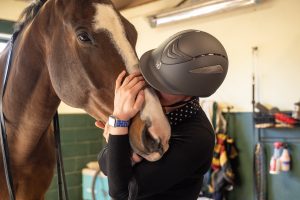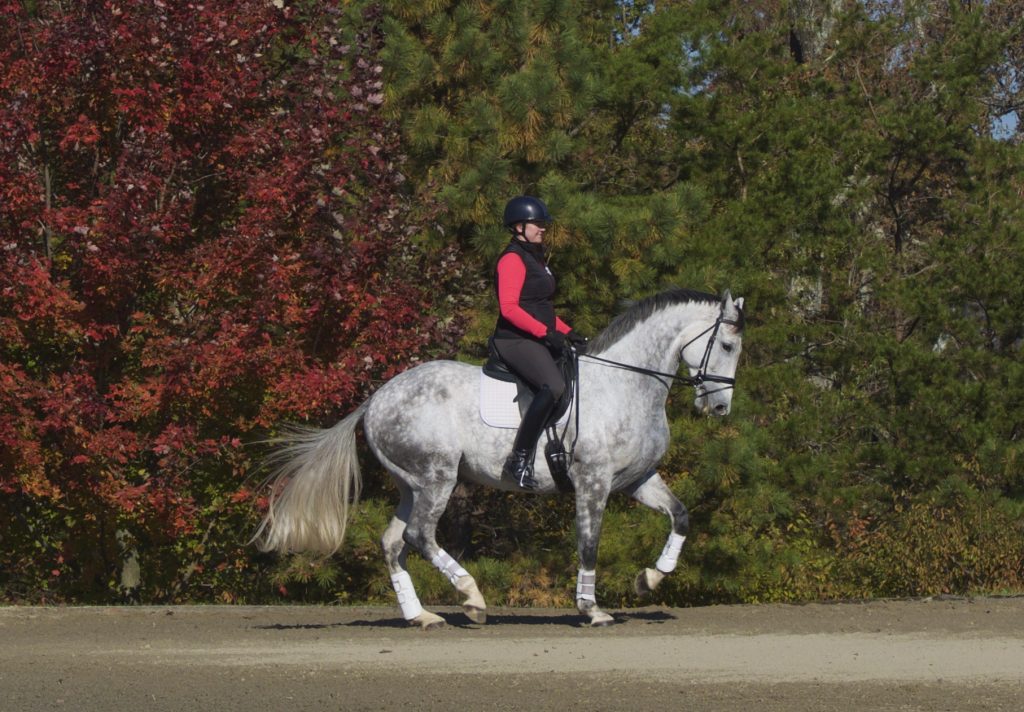Horse, Know Thyself
 The weather is turning, and our horses coats are growing. Last week my 6-year-old, Eddie, was clipped, his first time doing so in my owning him. He was perfect, the clip came out great, and the next day, I went to ride him. The second the saddle pad hit his back, he curled up and froze. He held his breath. His eyes went wide. He walked around the arena in hand for a bit, but discretion being the better part of valor, I stuck him on the lunge line. And he exploded, huge bucks, over and over and over. I’ve never seen anything like it. I struck a balance in my lunging between letting him let the energy out (honestly, I didn’t have a whole lot of say in the matter), and making transitions so he had to stay at least vaguely present and with me.
The weather is turning, and our horses coats are growing. Last week my 6-year-old, Eddie, was clipped, his first time doing so in my owning him. He was perfect, the clip came out great, and the next day, I went to ride him. The second the saddle pad hit his back, he curled up and froze. He held his breath. His eyes went wide. He walked around the arena in hand for a bit, but discretion being the better part of valor, I stuck him on the lunge line. And he exploded, huge bucks, over and over and over. I’ve never seen anything like it. I struck a balance in my lunging between letting him let the energy out (honestly, I didn’t have a whole lot of say in the matter), and making transitions so he had to stay at least vaguely present and with me.